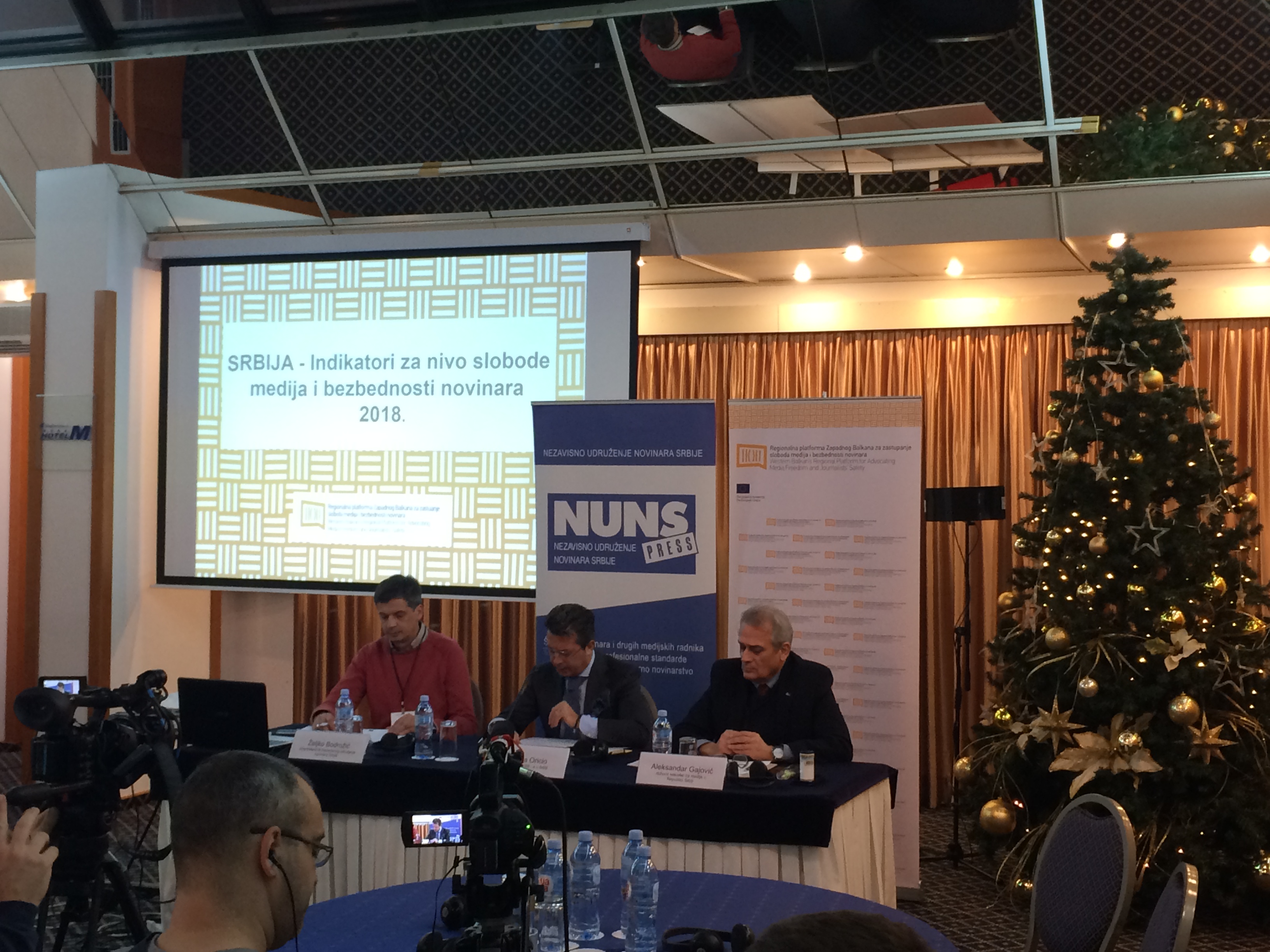
BELGRADE, 21.12.2018. – The freedom of the press in Serbia is at a very low level and has been continuously falling for years, the Independent Association of Journalists of Serbia concluded in a study, which also says that state officials do not understand the role of journalists in society and that they rarely and selectively condemn attacks on members of the media.
The study, called The Indicators of the Level of Media Freedoms and Security of Journalists 2018, was presented at a conference in Belgrade. Ministry of Culture and Information secretary of state Aleksandar Gajovic attended, and said that the safety of journalists in Serbia was guaranteed by the Constitution and media laws and that his ministry condemned all attacks on members of the press.
The author of the study, Marija Vukasovic, said that, since the beginning of the year, a total of 93 cases of attacks and instances of pressure on journalists were recorded, but that the actual number of attacks was higher and that two more cases were being worked on.
She said that, since 2016, a total of 70 cases of pressure and attacks on journalists by public officials were registered, and that the situation was most dire on the local level.
The study said that journalists had been working in difficult conditions for a long time, that they were under constant pressure which was no longer direct, and that “journalists know in advance what they are allowed to write and what they are not.”
Gajovic reiterated several times that “the time when fists were used to talk is over” and that he opposed all use of force.
OSCE mission chief in Serbia Andrea Orizio said that the torching of journalist Milan Jovanovic’s house had sounded the alarm and was a case study of which path Serbia would choose.
He pointed out that journalists in Serbia “are constantly paying a high price,” and that the murders of journalists in the 1990s had not been solved yet, and said crimes against representatives of the media “must not go unpunished.”
“Politicians and all other actors cannot intimidate journalists and must condemn violence at every moment. This is very important for an open dialog,” Orizio said.
He lauded work being done on a new media strategy and stressed that it was crucial that all relevant journalist societies be included in it, as, he said, the strategy “is not a totem, but a tool” for creating a better media environment.
“It looks like the authorities are acting with greater speed, there is progress, but there is still a lot of work to be done. We must make this process irreversible and reach concrete results,” Orizio said.
Independent Journalist Society deputy president and editor of the Kikindske weekly Zeljko Bodrozic said that the poor freedom of the press was the result of the authorities’ influence on the media and editorial policy, due to which it was necessary to advance cooperation with institutions.
The Independent Journalist Association of Serbia will publish the full study in Serbian and in English at www.safejournalists.net.